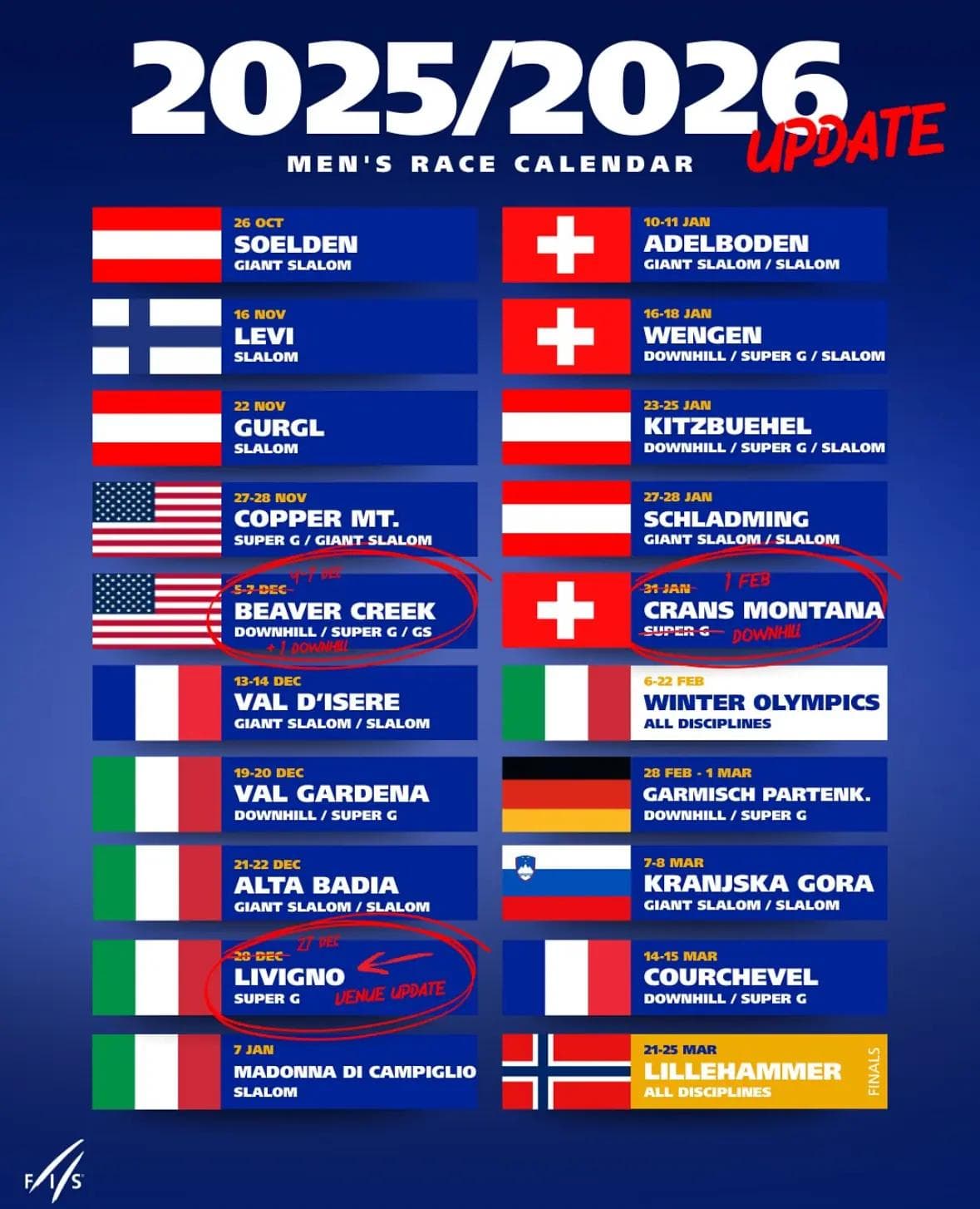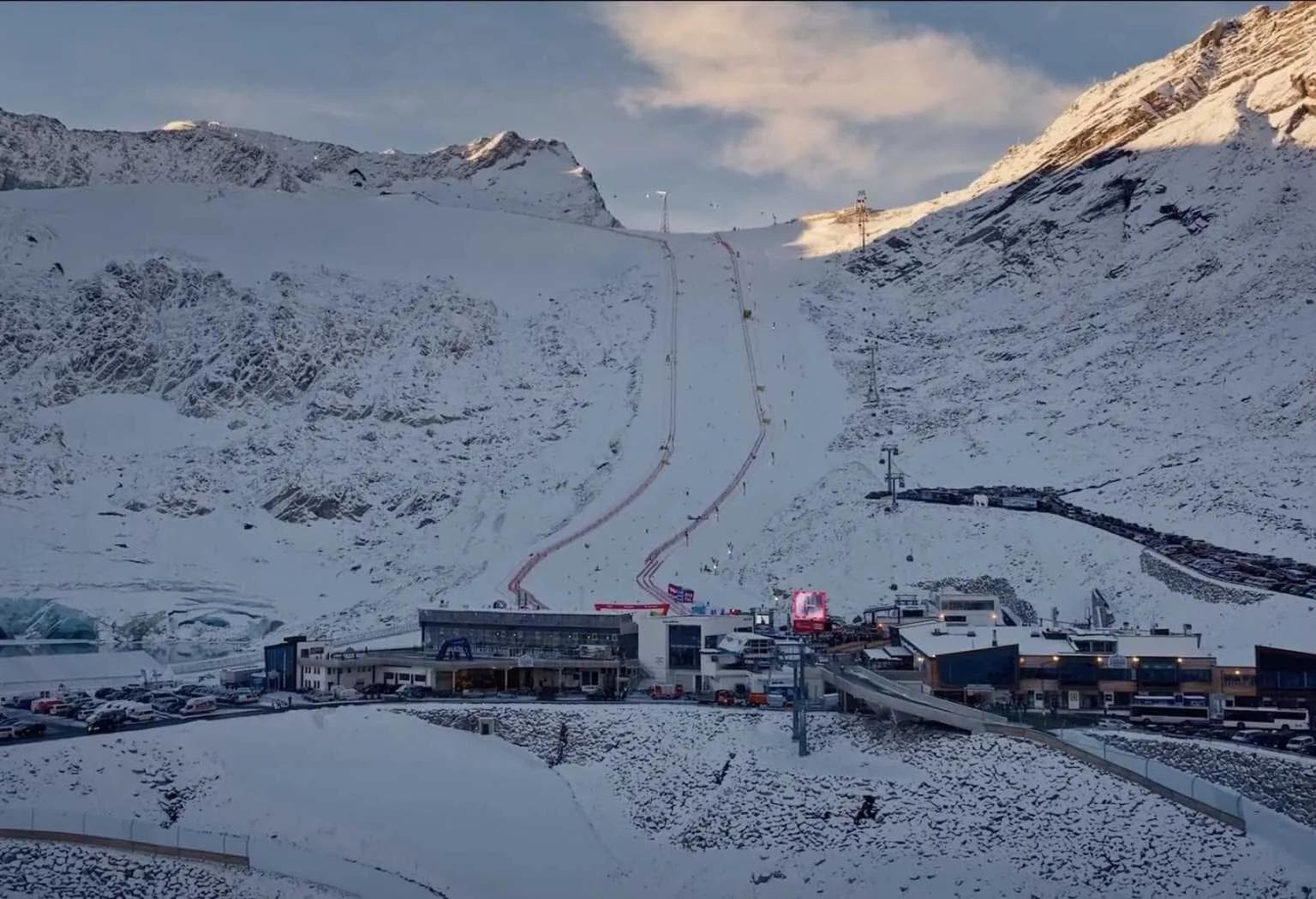
FIS Alpine World Cup 2025-26: Men's Calendar Rebalanced After Speed Skier Complaints
Published Date:
FIS Caves to Pressure from Speed Specialists
The International Ski Federation (FIS) has made significant alterations to the men's 2025-26 Alpine World Cup calendar, bowing to pressure from speed specialists who complained about an initial imbalance favouring technical events. The revised schedule now features 38 total races, evenly split between 20 technical events (9 Giant Slalom, 11 Slalom) and 18 speed events (9 Downhill, 9 Super-G). This marks a departure from the preliminary calendar released in May, which had proposed 10 Super-G and only 7 Downhill races.
These changes are more than just a numbers game. They represent a calculated move by the FIS to address growing discontent among speed skiers, who argued the original calendar unfairly tilted the odds of winning the Overall Season Trophy - the coveted 'big Crystal Globe' - towards technical specialists.

The most notable adjustments include converting a Super-G race in Crans Montana, Switzerland to a Downhill event, and adding an extra Downhill to the Beaver Creek, Colorado stop. These modifications aim to create a more level playing field for Downhill specialists competing for the overall title.
While the FIS deserves some credit for responding to athlete concerns, this last-minute reshuffling also highlights ongoing tensions between speed and technical disciplines within Alpine skiing. It's a perennial balancing act for the governing body, trying to satisfy competing interests while also considering logistical constraints, television contracts, and the preferences of host venues.
The revised calendar maintains some traditional elements. Sölden, Austria will host the season opener with a Giant Slalom, while speed specialists will have to wait until late November for their first taste of competition with a Super-G in Copper Mountain, Colorado. The North American swing continues with additional speed events and a technical race in Beaver Creek before the circuit returns to Europe for the bulk of the season.

This calendar adjustment serves as a reminder of the complex ecosystem surrounding top-level ski racing. While the changes may placate speed specialists in the short term, they also raise questions about the long-term direction of Alpine skiing.
The push for more Downhill events comes at a time when many ski resorts are struggling with the effects of climate change, making it increasingly challenging to reliably host speed events that require longer, more snow-dependent courses. Additionally, the costs and logistical challenges associated with Downhill races are significantly higher than those for technical events.
Ultimately, while this rebalancing may create a fairer competition for the Overall trophy in 2025-26, it doesn't address the underlying structural issues facing Alpine skiing. The sport will need to grapple with how to evolve in the face of changing climate patterns, shifting viewer preferences, and the perennial challenge of maintaining both speed and technical disciplines at the highest level. For now, speed specialists can claim a victory, but the long-term sustainability of their discipline remains an open question.


